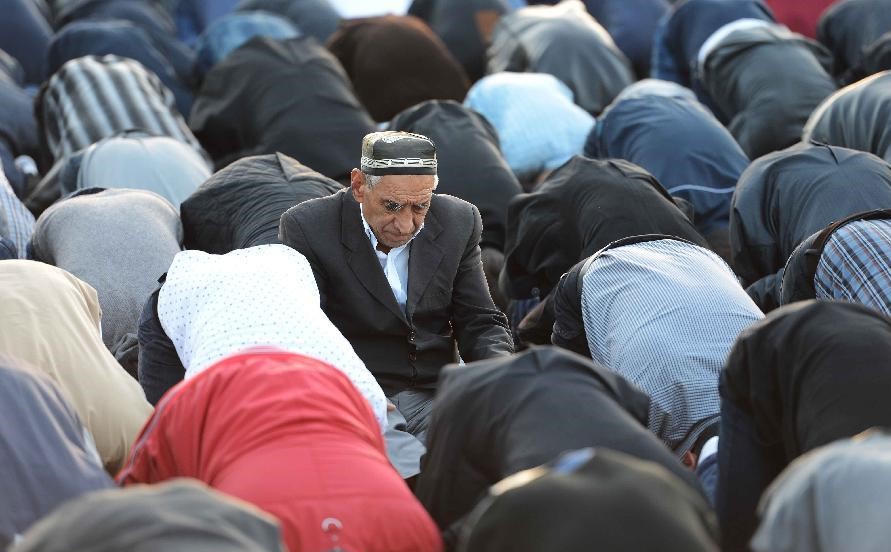## Islam: Entering the threshold of 20th century ##

Advertisement
Islam entered the threshold of 20th Century after the disintegration of the Ottoman Empire. That period had brought forth the chinks in the armor of Islamic constituents or countries in the empire. It is on the basis of these chinks that the future perspective of Islam may be gauged.
Before the decolonization began after the Second World War and most of the Islamic countries were declared independent, a major shift had taken place in the social and political philosophy of Islam. The most prominent shift was the rise of Nationalism replacing solidarity in the name of Islam. This shift had started immediately during the period of Khulfai Rashidin. However, it got accelerated during Umayyad rule. This concept gave a fillip to the role of clans and tribes within the garb of Islam in ruling the kingdoms and countries under their possession. Much later, after decolonization, a new struggle for democracy started in these countries.
It may be noted that in the last two centuries, Islam has been facing a twin crises, both internal and external. On both the counts it has to face, generally, its own people; rather adherents of Islam. Since most of the Muslim countries had become Colonies they adopted culture, language and customs of their colonizers. Meanwhile, many emerging Muslim leaders discovered the devices of long term safety and self-security to remain in power. One of the devices was and still remains the double edged weapon of radicalization. In fact, when Suharto constituted Indonesia by clubbing 3000 islands and Dutch laid claim on this country, Suharto, a strong nationalist took the course to radicalism. He was a reputed secular nationalist but he was not left with any other option.
The concept of consensus and earlier form of democracy, forms the core of Islamic system. In this system there is no scope for autocracy, dictatorship or monarchy. But this system was replaced by autocracy or military dictatorship in most of the Muslim countries. Thus, this system accommodated clan and tribal kinship in ruling and governing the Muslim countries.
It is pertinent to note that most of the Muslim countries in West Asia and North Africa had their close ties with the great powers of the First world, who continued to nourish and protect their interests. These countries continue to remain the satellites of the big powers of the first world. The big powers continued to use these countries as janissaries of Ottomans to hold their power in the world affairs.
This situation has brought Muslim countries at logger heads against each other. Thus, basic complexion of Islamic brotherhood got gradually distorted. This position resulted in the formation of two formidable camps – one which upheld the status quo and the other which wanted to change it. Many conflicts in the present world are witnessing this phenomenon in the name of Islam and there seems to be no end to this state of affairs.
Two offshoots are posing a challenge to the world peace in the name of Islam today: Jihad and Mujahedeen (Pl. of Mujahid). Ironically, the term Islam means peace and yet many twists and turns given to these two terms has raised a great deal of din in which the real mission of Islam has gone blurred. It is obvious that any upheaval, uprising or war raised in the name of Islam is conveniently termed as Jihad and any participant in this activity is a Mujahid. These claims need to meet detailed discussion with regard to their meaning, application and the spirit in which they have been used and applied. A profound discussion on these terms reveal that there has been no unanimity on the use and application of these terms. However, what comes to the fore is that these terms have been used in a generalized manner particularly for strategic purposes and maneuvers.
A new development which has brought challenge to Islam is the urge to acquire independent and sovereign status on the part of small tracts of land with a Muslim majority population within a large Muslim Country or within a sovereign and secular country. Kurdistan, Chechnya or Xinjiang are fine examples of the same. In all these places the participants, or more precisely Mujahedeen, are invoking Jihad to carve out an independent Islamic state. In many such situations big powers are taking the sides as per their convenience which further re-invigorate conflicts.
It is interesting to note that recently Turkey is intervening in Iraq, Syria, Cyprus and even Libya to show its strength in the region. The issue is the assertion of Kurds and their struggle for establishing an independent Kurdistan. Due to various geo-political circumstances, these Kurd areas are divided in many countries and Islam does not seem to come to the rescue of Kurds.
Advertisement






